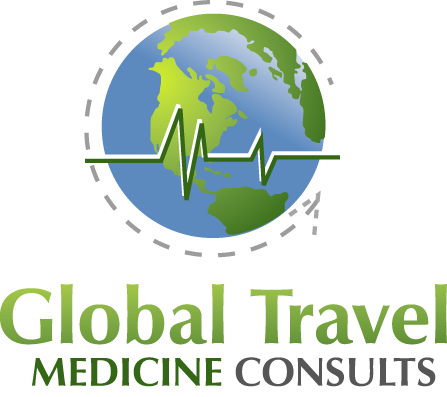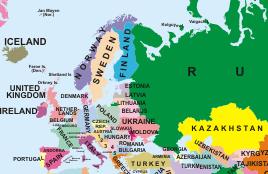Travel Medicine Vaccine and Immunization Information for Countries in Western Europe, Northern Asia and former Soviet Union Countries
Travel Medicine Immunization and Vaccine requirements in Western Europe, Northern Asia and former Soviet Union Countries vary from region to region. However, there are some General Guidelines for vaccines such as the Typhoid Vaccine, Diphtheria Vaccination, Hepatitis A, Malaria, and other vaccines which are outlined below.
Travel Medicine Information for Europe and Northern Asia
Please click on the Links below for each individual country you will be traveling in within Europe and Northern Asia to view the specific travel medicine requirements:
Western Europe
Eastern Europe and Northern Asia
General Health Information for Travelers to Countries in Western Europe, Eastern Europe and Northern Asia
Recommended Vaccinations and Preventive Medications:
* Hepatitis A or immune globulin (IG). Transmission of hepatitis A virus can occur through direct person-to-person contact; through exposure to contaminated water, ice, or shellfish harvested in contaminated water; or from fruits, vegetables, or other foods that are eaten uncooked and that were contaminated during harvesting or subsequent handling. You are not at increased risk in Northern, Western, and Southern Europe, including the Mediterranean regions of Italy and Greece.
* Hepatitis B, especially if you might be exposed to blood or body fluids (for example, health-care workers), have sexual contact with the local population, or be exposed through medical treatment. Hepatitis B vaccine is now recommended for all infants and for children ages 11-12 years who did not receive the series as infants.
* Malaria: if you are traveling to a malaria-risk area in this region, see your health care provider for a prescription antimalarial drug.
* Rabies, if you might have extensive unprotected outdoor exposure in rural areas, such as might occur during camping, hiking, or bicycling, or engaging in certain occupational activities.
* Typhoid, particularly if you are visiting developing countries in this region. Typhoid fever can be contracted through contaminated drinking water or food, or by eating food or drinking beverages that have been handled by a person who is infected. Large outbreaks are most often related to fecal contamination of water supplies or foods sold by street vendors
* As needed, booster doses for Tetanus-Diphtheria and Measles. Outbreaks of Diphtheria have been reported in states of the former Soviet Union. Travelers to these areas should be sure that their diphtheria immunization is up to date.
Diseases found in Western Europe, Eastern Europe and Northern Asia (risk can vary by country and region within a country; quality of in-country surveillance also varies).
The preventive measures you need to take while traveling in Eastern Europe and Northern Asia depend on the areas you visit and the length of time you stay. You should observe the precautions listed in this document in most areas of this region.
The preventive measures you need to take while traveling in Western Europe depend on the areas you visit and the length of time you stay. For most areas of this region, you should observe health precautions similar to those that would apply while traveling in the United States.
Malaria: (Eastern Europe and Northern Asia)
Malaria is always a serious disease and may be a deadly illness. All travelers to Malaria-risk areas in Eastern Europe, including infants, children, and former residents of Eastern Europe, are at risk for Malaria. Parts of the countries of Armenia, Azerbaijan, Georgia, Kyrgyzstan, Tajikistan, Turkmenistan, and Uzbekistan have Malaria risk. Travelers to Malaria-risk areas in Armenia, Azerbaijan, Georgia, Kyrgyzstan, Tajikistan, Turkmenistan, and Uzbekistan should take antimalarial drugs. In Uzbekistan, the risk of Malaria is low and varies along its border with Tajikistan.
There is no risk for Malaria in Albania, Belarus, Bosnia/Herzegovina, Bulgaria, Croatia, Czech Republic, Estonia, Hungary, Kazakhstan, Latvia, Lithuania, Macedonia, Moldova, Poland, Romania, Russia, Serbia/Montenegro, Slovakia (Slovak Republic), Slovenia, and Ukraine.
Yellow Fever:
There is no risk for Yellow Fever in Western Europe, Eastern Europe and Northern Asia. A certificate of Yellow Fever vaccination may be required for entry into certain of these countries if you are coming from countries in South America or sub-Saharan Africa.
Food and Waterborne Diseases:
Make sure your food and drinking water are safe. Food and waterborne diseases are the primary cause of illness in travelers. Travelers' Diarrhea can be caused by viruses, bacteria, or parasites, which are found throughout Western Europe and Eastern Europe and can contaminate food or water. Infections may cause diarrhea and vomiting (E. coli, Salmonella, Cholera, and Parasites), fever (Typhoid Fever and Toxoplasmosis), or liver damage (Hepatitis). The risk of Hepatitis A can be high in parts of the Eastern Europe region.
Variant Creutzfeldt-Jacob (in animals bovine spongiform encephalopathy/mad-cow disease) cases have been reported primarily from the United Kingdom, though a small number of cases have been reported from other countries. Large outbreaks of Trichinosis have occurred; outbreaks in France have been linked to horsemeat.
Other Disease Risks - Eastern Europe and Northern Asia:
Tick-borne Encephalitis, a viral infection of the central nervous system occurs in the southern part of the non-tropical forest belt in Europe and Asia (to Pacific Ocean). Most intense transmission has been reported in Russia, Czech Republic, Latvia, Lithuania, Estonia, Hungary, Poland, and Slovenia. Travelers are at risk who visit or work in forested areas during the summer months and who consume unpasteurized dairy products. Vaccine for this disease is not available in the United States at this time. A number of Rickettsial infections also occur in this region. To prevent tick-borne infections travelers should take precautions to prevent tick bites.
Other infections that tend to occur more often in longer-term travelers (or in immigrants from the region) include Tuberculosis, Hepatitis B, Hepatitis C (especially in Romania), and Cutaneous and Visceral Leishmaniasis in parts of Azerbaijan and Tajikistan.
Outbreaks of Diphtheria have been reported in states of the former Soviet Union. There is a vaccine available to prevent diphtheria.
Other Disease Risks - Western Europe:
In 2004-2005 there has been a marked increase in reported cases of Mumps in the United Kingdom. Tick-borne Encephalitis, a viral infection of the central nervous system, occurs in Austria, Germany, Finland, Sweden, Switzerland, Denmark (only on the island of Bornholm); a few cases have also been reported from Italy, Norway, and France. Travelers are at risk who visit or work in forested areas during the summer months and who consume unpasteurized dairy products. The vaccine for this disease is not available in the United States at this time. To prevent Tick-borne Encephalitis, as well as Lyme disease, travelers should take precautions to prevent tick bites.
Leishmaniasis (cutaneous and visceral) is found in countries bordering the Mediterranean, with the highest number of cases from Spain, where it is an important opportunistic infection in HIV-infected persons.
Legionnaries Disease, caused by the Legionella bacterium, is sporadic; some outbreaks have involved tourists at resort hotels.
About Us:
We are Travel Medicine Board Certified Physicians and Doctors. We provide: Yellow Fever, Typhoid, Hepatitis A, Hepatitis B, Diphteria, Tetanus, Pertussis, Meningitis, Hemophilus B, Rabies, Japanese Encephalitis Virus, Mumps Measles and Rubella (MMR), HPV (Gardasil), Rota Virus, Varicella, Polio and Influenza Vaccines to Residents of Washington DC, Maryland and Virginia.
Our Vaccines Clinic is located in the Washington DC Metro area.




